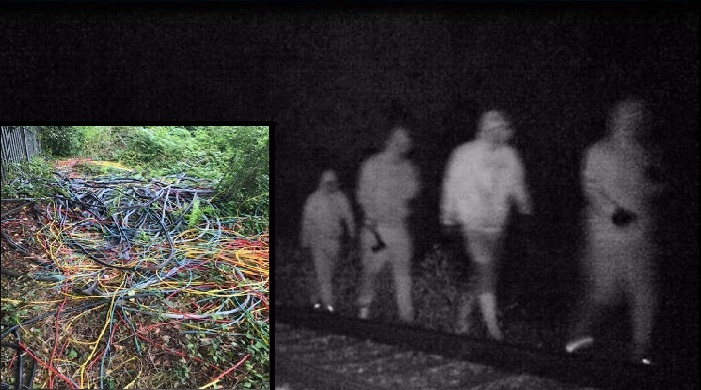
(Network Rail)
NETWORK Rail is cracking down on thieves amidst a raft of new measures being introduced to stop the theft of metal from the railway.
The organisation has boosted its security by deploying drones and forensic marking agents, as well as using overt and covert security cameras, utilising new ways of securing cables, introducing harder-to-steal cables, and setting up dedicated security teams.
Taxpayers have been cost £1.1 million as a result of theft in the Wales and Borders route since 2023. Network Rail said the ‘majority’ of thefts took place in south Wales, however it is unable to provide specific locations due to pending trials, ongoing investigations, and security. So far, seven arrests have been made this year – which is double that of 2022.
Overhead power lines and metal fences have also been targeted by thieves. As a result, Network Rail has been working with the wider industry and scrap metal dealers to prevent stolen cable being sold as part of the scrap dealers act 2013.
British Transport Police national lead for metal crime, superintendent Mark Cleland, said, “BTP are working closely with the rail industry, the waste industry and partners including the joint unit for waste crime and the national economic crime centre to target those who see an opportunity to make money from stealing metal.
“Metal crime is highly disruptive to the UK economy and the actions of those who steal metal can put their own lives and others lives at risk. BTP continue to run numerous operations targeting organised criminality ensuring we seek convictions and confiscate all assets to ensure no one can profit from this crime.
“In the last two years alone, hundreds of arrests have been made and millions of pounds recovered from offenders with numerous multi-year convictions proving that any targeting of national infrastructure has severe implications to those who decide to test our ability to catch them.”








